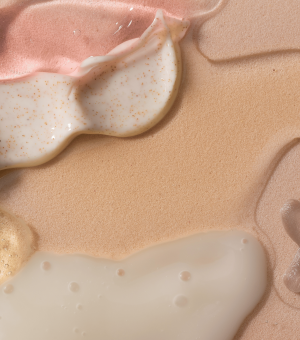Skin problems are often perceived as purely cosmetic concerns, but their impact on the mental health of those affected is often underestimated. Common skin conditions such as acne, eczema, psoriasis and rosacea can have a profound impact on self-esteem, confidence and overall well-being. In this article, we will explore the link between skin problems and mental health, and discuss solutions to help those affected better manage the associated emotional challenges.
The link between skin problems and mental health
Self-esteem and physical appearance
Physical appearance plays an important role in self-esteem and confidence. Skin problems can cause feelings of insecurity and discomfort, which can lead to withdrawal and feelings of social isolation. Additionally, the stigma and judgments associated with skin problems can exacerbate these feelings and lead to depression and anxiety (Dalgard et al., 2015).
Impact on quality of life
Skin problems can also affect the quality of life of those affected. The pain, itching, and discomfort associated with some skin conditions can disrupt sleep, daily activities, and interpersonal relationships. Medication treatments and skin care can also be costly and time-consuming, adding additional stress (Sampogna et al., 2017).
Solutions for managing the impact of skin issues on mental health
Consult a health care professional
If you are suffering from a skin condition that is affecting your mental health, it is important to see a medical professional, such as a dermatologist, for proper diagnosis and treatment. Effective treatment can improve the appearance of the skin, alleviate physical discomfort and, in turn, improve mental health.
Seek emotional support
Emotional support is crucial in dealing with the impact of skin problems on mental health. Talk about your feelings and concerns with friends, family members or a counselor. Joining support groups, either in person or online, can also be beneficial for sharing experiences and advice with others facing similar challenges.
Practice self-compassion
Learn to treat yourself with kindness and compassion, and accept that skin issues do not define your worth as a person. Focus on your qualities and accomplishments, and avoid comparing yourself to others. Mindfulness practice can help you develop self-compassion and better manage the negative thoughts and emotions associated with your skin condition.
Manage stress
Stress can aggravate skin problems and contribute to poor mental health. Learn how to manage stress through relaxation techniques such as meditation, yoga, deep breathing or exercise. Find what works best for you and incorporate these practices into your daily routine.
Take a holistic approach
A holistic approach to managing skin and mental health issues includes adopting a healthy lifestyle, balanced diet, quality sleep and regular physical activity. These elements can not only improve the condition of your skin, but also strengthen your emotional resilience and overall well-being.
Conclusion
Skin issues and mental health are closely linked, and addressing the emotional impact of skin conditions is essential to providing comprehensive support for those affected. By consulting a health care professional, seeking emotional support, practicing self-compassion, managing stress, and taking a holistic approach, you can improve your physical and emotional well-being and better manage the challenges associated with skin conditions.
References:
Dalgard, F. J., Gieler, U., Tomas-Aragones, L., Lien, L., Poot, F., Jemec, G. B. E., ... & Bewley, A. (2015). The psychological burden of skin diseases: a cross-sectional multicenter study among dermatological out-patients in 13 European countries. Journal of Investigative Dermatology, 135(4), 984-991.
Sampogna, F., Tabolli, S., & Abeni, D. (2017). Living with psoriasis: prevalence of shame, anger, worry, and problems in daily activities and social life. Acta dermato-venereologica, 97(4), 451-457.



